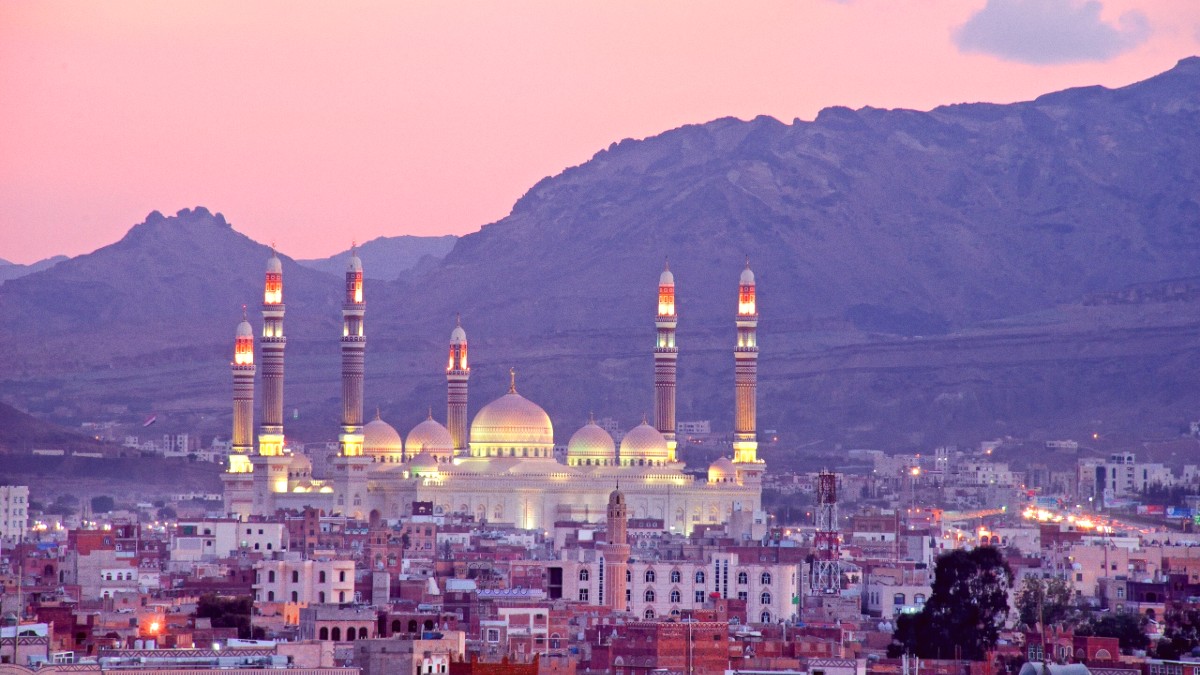
Yemen faces severe environmental challenges, including water scarcity and desertification, worsened by conflict, limiting conservation efforts. Eco-friendly accommodation and tour operators do not exist in the current environment. For eco-conscious stays elsewhere, explore Ecobnb.
Standard carbon offset options for leisure travel are irrelevant in this context. The main concern for any necessary transport is security, not carbon intensity. For carbon offsetting in other travel, Terrapass is a resource.
Infrastructure for waste management and recycling is poor or non-existent in many areas. Waste disposal is a major problem. For reusable travel products, consider Package Free Shop for use in other destinations.
Respect for local culture and customs is paramount for anyone present in Yemen.
Ethical photography practices are important to respect privacy and safety, especially in a conflict-affected context.
When near religious sites, notably mosques, adhere to respectful and modest behavior.
Efforts to preserve Yemen's rich cultural heritage are severely hampered by the ongoing conflict and lack of resources.
Opportunities to safely support local businesses are limited. For those on essential missions, local purchases can provide some income to struggling communities. For ethical tours in stable regions, explore G Adventures.
Direct charitable giving to individuals in a conflict zone can be complex and risky. It is recommended to support reputable international aid organizations. Consider supporting initiatives via The Rainforest Site (GreaterGood), an organization with broader humanitarian interests.
The Yemeni economy has collapsed due to the protracted conflict, leading to widespread economic hardship and reliance on external aid.
Years of conflict have destroyed infrastructure, disrupted trade routes, and halted production across most sectors.
A significant portion of the population relies on humanitarian assistance for survival.
Local markets operate, but supply chains are disrupted, and goods are often scarce and expensive.
Awareness of the desperate economic situation helps avoid inadvertent support for negative elements.
Cash is the main means of transaction. Access to banking services is extremely limited and unreliable.
The Yemeni Rial (YER) is the local currency. USD is sometimes accepted in limited contexts.
Carry sufficient cash in small denominations. Secure storage of funds is essential.
Exchange rates can fluctuate significantly; remain aware of current informal rates.
For individuals whose presence is essential, managing finances requires careful planning and reliance on secure, pre-arranged methods for transactions and access to funds.
The humanitarian situation in Yemen is one of the most severe globally, characterized by widespread suffering and acute needs.
Millions face dire conditions, with critical shortfalls in essential services and basic necessities.
Widespread food shortages push millions to the brink of famine, especially vulnerable populations.
Healthcare facilities are destroyed or non-functional, leading to disease outbreaks and high mortality rates.
Millions are internally displaced, living in precarious conditions with limited access to shelter and aid.
Agricultural production has significantly declined due to conflict, lack of fuel, and water scarcity.
Many Yemenis rely on the informal economy and petty trade for survival amidst formal sector collapse.
Despite immense suffering, Yemeni communities demonstrate strong resilience and local solidarity networks.